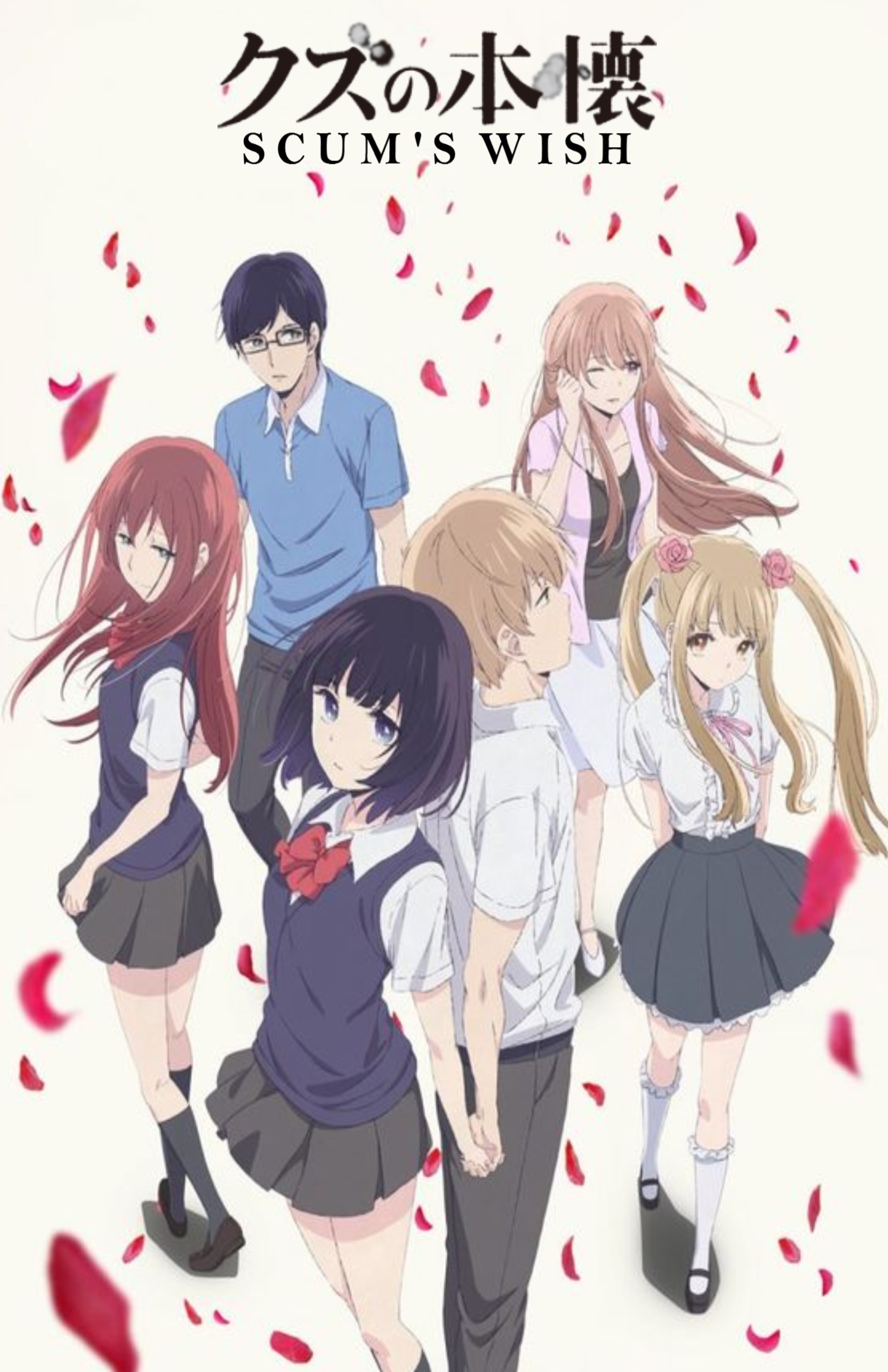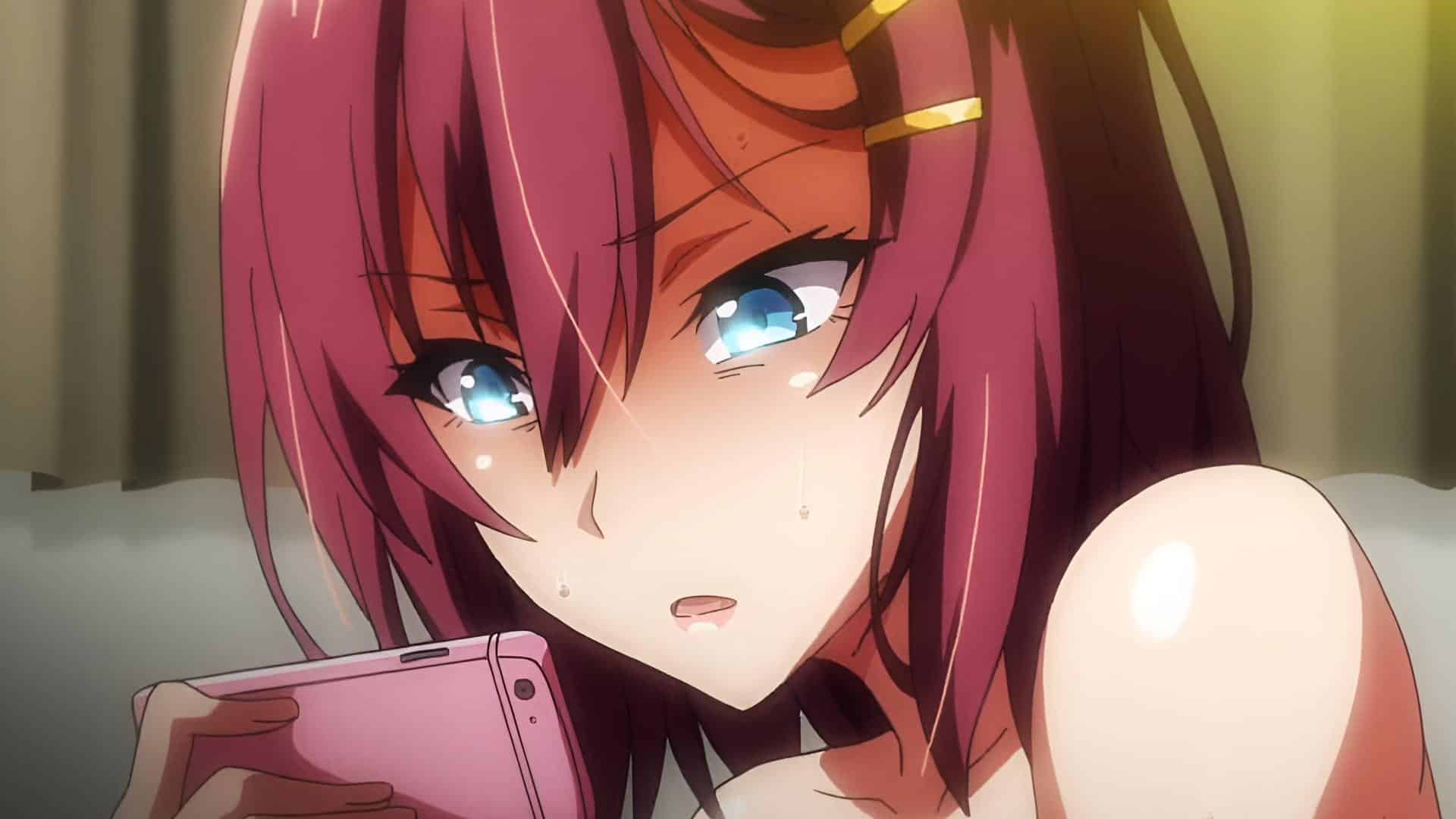Let’s talk about something that anime fans can’t seem to stop buzzing about—NTR full form anime. If you’re scratching your head wondering what it means, don’t worry, you’re not alone. NTR is a term that’s been floating around in anime circles for years, and it’s time we break it down for you. Whether you’re a seasoned anime enthusiast or just dipping your toes into this colorful world, understanding NTR can give you a whole new perspective on the genre. So, buckle up, because we’re diving deep into the world of anime and its complex relationships!
NTR full form anime is more than just a catchy phrase. It represents a specific trope in anime storytelling that resonates with a particular audience. If you’ve ever watched an anime where the protagonist’s partner or love interest ends up with someone else, chances are you’ve encountered NTR. But what exactly does it mean? And why does it stir up so much debate among fans? We’re here to answer all your burning questions.
Before we dive into the nitty-gritty, let’s set the stage. Anime has always been a genre that pushes boundaries, exploring themes that are both relatable and fantastical. NTR is just one of the many tropes that add depth and complexity to anime narratives. So, whether you’re here to learn more about NTR or just curious about its impact on the anime world, you’re in the right place.
- Discover The Ultimate Guide To Hair Twist Hairstyles
- Ronnie Radke Crissy Henderson Love Fame Their Story
What Does NTR Mean in Anime?
Let’s start with the basics. NTR stands for "Netorare," a Japanese term that translates to "being cuckolded" or "having your partner stolen." In the context of anime, NTR refers to a storyline where a character’s romantic partner or spouse ends up with someone else, often leading to emotional turmoil and heartbreak. It’s a trope that’s both controversial and compelling, attracting a niche audience within the anime community.
Now, you might be wondering why anyone would want to watch something so… intense. Well, it’s all about the emotional journey. NTR stories often explore themes of betrayal, trust, and forgiveness, making them a rich source of drama and character development. And let’s face it, anime fans love a good emotional rollercoaster.
Why Is NTR So Controversial?
Here’s where things get interesting. NTR is one of the most polarizing tropes in anime. On one hand, fans argue that it adds depth to the narrative by exploring complex emotions and relationships. On the other hand, critics say it perpetuates unhealthy relationship dynamics and can be triggering for some viewers.
But why does it stir up so much debate? Well, it’s not just about the storyline. NTR often involves themes of infidelity and betrayal, which can be difficult to stomach for many viewers. Some argue that it reinforces toxic relationship patterns, while others believe it’s just a fictional trope that shouldn’t be taken too seriously.
History of NTR in Anime
To understand the significance of NTR, we need to look back at its origins. NTR has been a part of anime culture since the early days, though it wasn’t always called by that name. In the past, similar themes were explored in manga and light novels, often under different names.
Over time, the term NTR gained popularity, especially with the rise of internet forums and fan communities. As anime became more accessible to a global audience, NTR gained traction as a distinct trope, sparking discussions and debates among fans worldwide.
How Has NTR Evolved Over Time?
Like any other trope, NTR has evolved over the years. In the past, it was often portrayed in a more straightforward manner, focusing on the emotional impact on the main character. However, modern anime has started to explore NTR in more nuanced ways, delving into the psychological and social implications of such relationships.
Some recent anime have even used NTR as a tool for character growth, showing how the characters overcome their pain and move forward. This shift in storytelling has helped to broaden the appeal of NTR, making it more than just a shock value trope.
Common NTR Anime Examples
If you’re still not sure what NTR looks like in action, here are some popular anime examples to give you a better understanding:
- Elfen Lied: This classic anime is often cited as one of the earliest examples of NTR. The story revolves around the protagonist, Lucy, and her complicated relationships with the male characters.
- School Days: A controversial series that dives deep into the world of high school relationships and the consequences of infidelity. It’s not for the faint of heart!
- Golden Time: This romantic comedy explores the complexities of love and relationships, with a subtle nod to NTR tropes.
These examples showcase how NTR can be used to enhance storytelling, adding layers of complexity and emotion to the narrative.
Psychological Impact of NTR on Viewers
Now, let’s talk about the elephant in the room. NTR can have a significant psychological impact on viewers, especially those who are emotionally invested in the characters. For some, watching their favorite character go through heartbreak can be cathartic, helping them process their own emotions. For others, it can be triggering, bringing up painful memories of past relationships.
It’s important to remember that everyone reacts differently to NTR. While some fans enjoy the drama and excitement, others prefer to steer clear of such tropes. It’s all about finding what works for you and setting boundaries when needed.
How Can Fans Cope with NTR Content?
If you find yourself affected by NTR content, here are a few tips to help you cope:
- Take breaks when needed and don’t force yourself to watch something that makes you uncomfortable.
- Discuss your feelings with fellow fans or join online communities to share your thoughts.
- Remember that it’s just a story and doesn’t reflect real-life relationships.
By setting healthy boundaries and staying mindful of your emotional well-being, you can enjoy anime without letting NTR get the better of you.
Is NTR a Healthy Trope?
This is the million-dollar question. Is NTR a healthy trope, or does it promote unhealthy relationship dynamics? The answer, like most things in life, is complicated. On one hand, NTR can be a powerful tool for exploring complex emotions and relationships. On the other hand, it can perpetuate harmful stereotypes and unrealistic expectations.
Ultimately, it comes down to how the trope is used. When done well, NTR can lead to meaningful character development and thought-provoking storytelling. However, when used poorly, it can come across as gratuitous and insensitive.
What Do Experts Say About NTR?
According to psychologists and media experts, NTR can have both positive and negative effects on viewers. On the positive side, it encourages critical thinking and emotional intelligence, helping viewers navigate their own relationships. On the negative side, it can reinforce toxic relationship patterns and contribute to unrealistic expectations.
Experts recommend that fans approach NTR content with a critical eye, analyzing the underlying messages and themes. By doing so, they can gain a deeper understanding of the trope and its impact on society.
NTR in Modern Anime
As anime continues to evolve, so does the portrayal of NTR. Modern anime has started to move away from the traditional shock value approach, focusing instead on character growth and emotional depth. This shift has helped to broaden the appeal of NTR, making it more accessible to a wider audience.
Some recent anime have even used NTR as a tool for social commentary, exploring issues such as gender roles, power dynamics, and consent. By tackling these topics head-on, modern anime is helping to reshape the conversation around NTR and its place in the genre.
How Has Technology Influenced NTR in Anime?
With the rise of streaming platforms and online communities, NTR has become more accessible than ever before. Fans can now discuss their favorite NTR anime with others from around the world, creating a global community of enthusiasts. This increased accessibility has also led to a greater diversity of NTR content, with creators experimenting with new storytelling techniques and themes.
However, this accessibility comes with its own set of challenges. With so much content available, it can be difficult for fans to find quality NTR anime that resonates with them. That’s where research and critical thinking come in, helping fans navigate the vast world of anime and find stories that speak to them.
Conclusion: Is NTR Right for You?
So, there you have it—a deep dive into the world of NTR full form anime. Whether you love it or hate it, there’s no denying that NTR is a significant part of anime culture. It’s a trope that challenges viewers to think critically about relationships and emotions, offering a unique perspective on the human experience.
But is NTR right for you? That depends on your personal preferences and emotional boundaries. If you enjoy drama and complex storytelling, NTR might be worth exploring. However, if you find it triggering or uncomfortable, there’s no shame in steering clear.
Whatever your stance on NTR, remember that anime is all about having fun and exploring new worlds. So, grab some popcorn, settle in, and enjoy the ride. And don’t forget to share your thoughts with fellow fans—after all, that’s what makes anime so special!
Table of Contents
- Unveiling Guy Fieri Family Lori Life Beyond Flavortown
- Ice Spice Real Name Age Bio More Your Guide To The Rising Star


